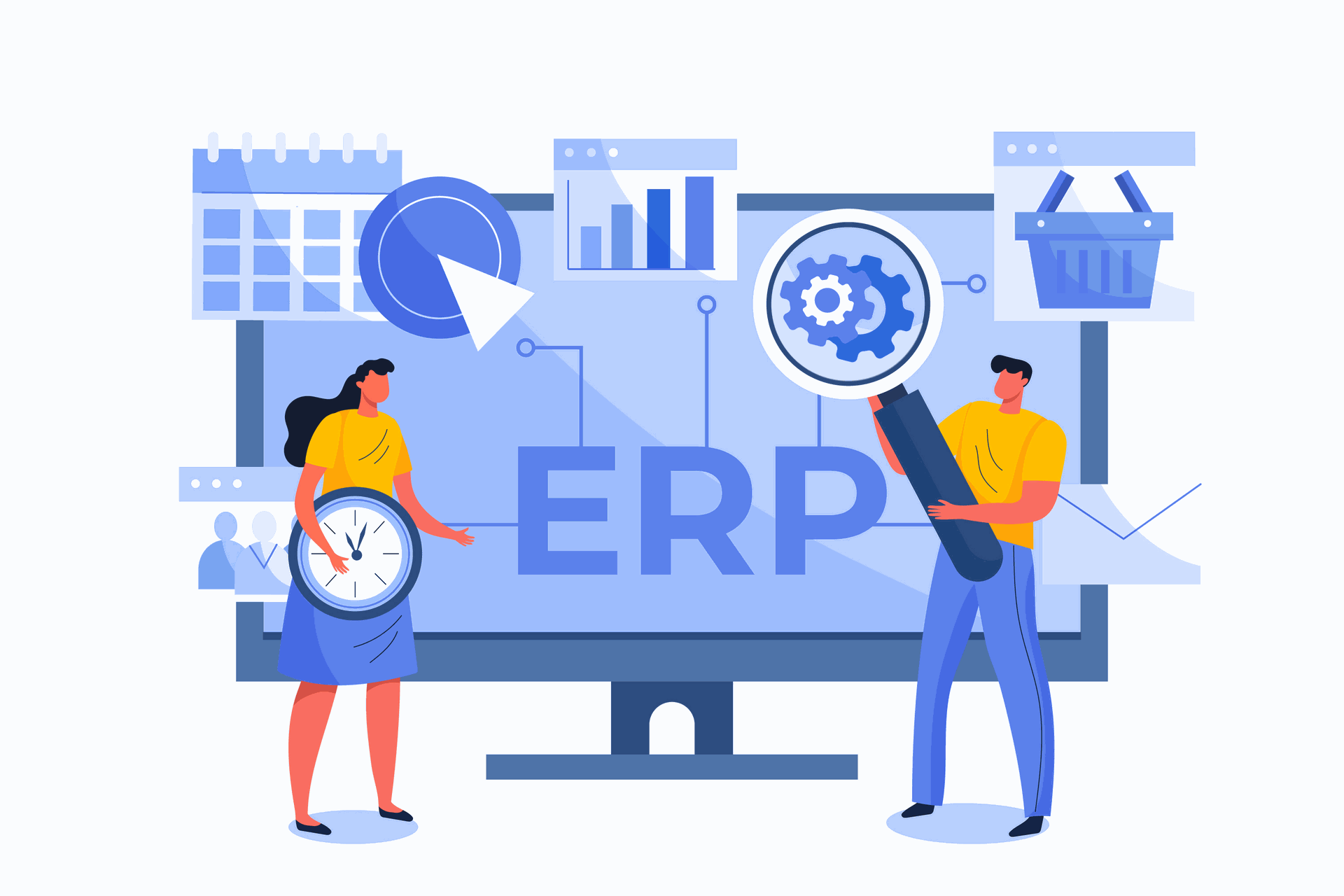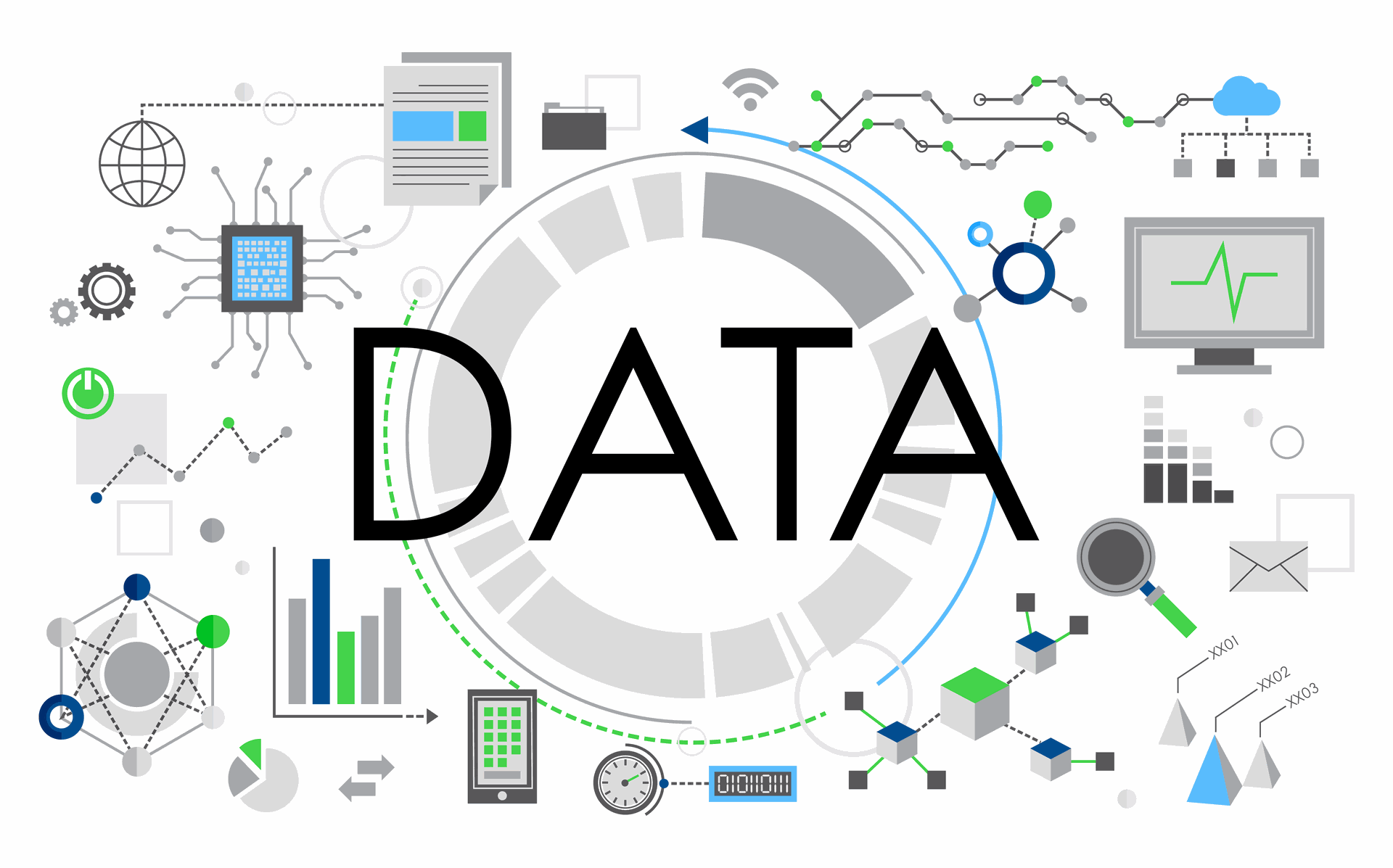The year 2025 is projected to be a period of strong growth for Artificial Intelligence (AI) and Big Data analytics within enterprises. Enterprise Resource Planning (ERP) platforms are transforming into intelligent operating systems where every decision is data-driven and AI-supported.
According to Gartner’s report, by 2026, over 70% of global enterprises will use AI-native integrated ERP, allowing them to predict business trends, optimize processes, and automate decision-making. Below, we explore how AI and Big Data are reshaping ERP systems.
1. How AI is reshaping ERP systems

Process automation, reducing manual tasks
AI has been deeply integrated into various ERP modules, from accounting and sales to human resources. Tools like AI OCR help read, understand, and extract data from documents, invoices, and contracts in mere seconds. Employees no longer have to manually enter data or perform manual reconciliations; instead, they can review, process, and send reports automatically within the system.
Platforms such as Odoo 19, Sota ERP, or Microsoft Dynamics 365 Copilot now enable users to write emails, create quotes, or analyze revenue trends using Generative AI. This advancement helps reduce the volume of repetitive work in an enterprise by 50–60%.
Contextual and data-driven decision making
AI not only "executes" but also "predicts." Based on sales data, customer behavior, or price fluctuations, the system can suggest:
- Which products should be restocked.
- Which customers have a high probability of repeat purchase.
- Revenue forecasts by season or region.
ERP systems now store a wealth of linked data across departments and employ intelligent AI assistants. Managers can "ask and answer" questions directly using Natural Language Processing (NLP), quickly retrieve data from a single-source ERP system, and generate comprehensive reports with one click, rather than manually pulling numerous complex reports.
AI in customer service and human resources
In the CRM or HRM domains, AI chatbots can automatically respond to customer inquiries, generate quotes, or screen candidate resumes. Furthermore, Machine Learning models help HR predict turnover rates, identify factors affecting productivity, and propose appropriate training plans.
2. Big Data – The foundation of intelligent ERP

Centralized data real time analysis
Modern ERP utilizes Big Data to link every department: accounting, HR, warehouse, sales, and operations. Managers can view sales, costs, inventory, and performance instantly, without the need for manual compilation from numerous scattered Excel files.
Data-driven decisions
The combination of Big Data and AI allows ERP to not only report metrics but also analyze root causes and suggest solutions. For instance, the system can automatically detect a persistently delayed delivery route, analyze the causes (driver issues, route complexity, or overburdened capacity), and propose optimal scheduling adjustments.
Data security and compliance
Alongside analytical power, modern ERP systems also apply AI in anomaly detection to prevent fraud and ensure compliance with security standards such as GDPR and ISO 27001.
3. Key trends in 2025
- AI-Native ERP: Platforms like Odoo 19, SAP S/4HANA Cloud, and Oracle Fusion ERP Cloud are deeply integrating Generative AI and predictive analytics.
- Predictive ERP: Automatically forecasting demand, cash flow, machine maintenance schedules, or employee performance.
- No-code AI Workflows: Enabling employees to set up automation processes without programming skills.
- ESG & Sustainability Module: ERP combines Big Data to track emissions, energy consumption, and progress toward enterprise ESG goals.
4. Benefits and impact on Vietnamese enterprises

For Vietnamese enterprises, especially SMEs in the fields of manufacturing, logistics, and distribution, ERP integrated with AI and Big Data brings clear benefits:
- Increase working productivity by 30–60% and reduce data entry errors.
- Make faster and more accurate decisions, based on real-time data instead of intuition.
- Improve customer experience with personalized service and automated responses.
However, the initial challenges are the investment cost, the ability to clean data, and system security. Businesses need to identify digital transformation as a long-term path that brings promising efficiency for the company's development. Identifying a long-term and sustainable path is the foundation that helps businesses prepare their mindset and resources for comprehensive and effective digital transformation.
A suitable starting solution for Vietnamese enterprises is user-friendly ERP platforms that come with pre-built AI modules, such as Sota ERP AI Assistant or Odoo 19 Enterprise, which allow for flexible and cost-effective deployment.
5. Conclusion
AI and Big Data are not merely a "technology trend" but a strategic step forward for every business aiming to accelerate digitalization. In an era where data is important and needs to be optimized, the enterprise that owns a smart ERP system will gain the leading advantage.
In 2025, ERP will become the foundation for everything from operations to decision-making, all driven by data and artificial intelligence. This is the moment for Vietnamese enterprises to proactively upgrade their systems, harness AI and Big Data, and move towards the Enterprise 5.0 model, which is flexible, sustainable, and smart. Contact us for more information